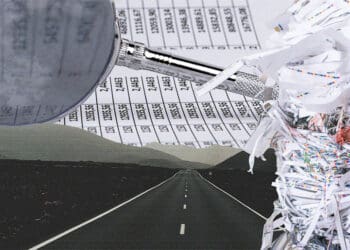Stakeholders and society in general are becoming more conscious about sustainability and corporate values each day. To this extent, there have been many instruments that have been adopted to encourage corporate sustainability in businesses.
The Dow Jones Index on Sustainability, Global Reporting Initiative’s (GRI) sustainability reporting, UN Global Compact’s Annual Communication of Progress (COP) Report, ISO 26000 on Corporate Social Responsibility and the OECD’s National Contact Points (NCP) are among the major global initiatives to encourage sustainability in businesses.
In various countries, regulators have enacted laws for nonfinancial reporting concerning sustainability. For example, after an amendment to the Companies Act 2006 in 2013, the U.K. has foreseen mandatory reporting on human rights, social and community issues and also on greenhouse gas emissions for listed businesses. France has taken a global lead and introduced mandatory climate change reporting for institutional investors, which will become mandatory as of January 1, 2017[1]. Furthermore, the European Union has issued a company law directive on nonfinancial sustainability reporting for public-interest businesses having more than 500 employees, to be effectuated as of January 1, 2017[2]. On the other hand, in the United States, the Securities and Exchange Commission (SEC) has foreseen disclosure requirements related to climate change.
The global developments on providing for corporate sustainability are promising. However, there are still many issues that have to be resolved and many steps that need to be taken. Firstly, the elements to be disclosed concerning sustainability vary between different systems. Also, apart from GRI’s guidelines, there is no mutual framework for nonfinancial sustainability reporting, such as the IFRS system in place for financial reporting. Furthermore, the nonfinancial sustainability reporting lacks binding effects in most cases.
I would suggest the implementation of a global standard and certification system concerning corporate sustainability. To this extent, initially, it is crucial to define the elements of corporate sustainability. In my opinion, these elements should be mainly comprised of sound business values and ethics; sustainable supply chain management, contributing to providing a solution to global sustainable development goals; corporate accountability and transparency; sound governance and human resources practices on human and labor rights; and ethical business decision-making[3].
These defined elements of corporate sustainability may be used to implement a global standard and certification system. The global set of standards and certification system is to be more than mere guidance, it is to have some sort of binding effect on businesses: these standards are to enable businesses to “self- certify” to stakeholders and society in general that elements of corporate sustainability have been implemented and internal measures are in place to that extent.
The “self-certification” may be implemented through a reporting system which, in my opinion, should be verified by third-party independent peers. Independent verification of a reporting system is crucial in terms of clarifying whether the “self-certification” is truly in place. Also, an independent verification will be a tool enabling the stakeholders to be informed on whether the said business is really complying with the sustainability values they have “self-certified.”
A global standard and self- certification system will not only enable the implementation of sustainability values; it will also be a tool to provide for legal sanctions in case of noncompliance. To this extent, the businesses that “self-certify” that they are sustainable — as set forth by the standards — will ultimately be providing information — or even advertising — to stakeholders. If the information that has been provided is not true, or in more technical words, if there is an incident of “greenwashing,” this may result in deceptive advertisement or misleading information in some cases.
In most countries, regulators have foreseen legal sanctions for misrepresentation, deceptive or false information or advertising. Thus, a self-certification system may be a tool to trigger those legal provisions.
Apart from enabling a legal ground for providing sanctions in case of noncompliance, I believe that “self-certification” of sustainability will have a positive impact concerning relations with stakeholders because stakeholders are becoming more conscious and sensitive about sustainability by the day. Moreover, I believe that such a system will have a positive impact in eliminating reputational risk and add value to businesses in the long run. Finally, sustainable businesses will create sustainable societies worldwide.
[1] https://www.legifrance.gouv.fr/eli/decret/2015/12/29/2015-1850/jo/texte
[2] http://eur-lex.europa.eu/legal-content/EN/TXT/PDF/?uri=CELEX:32014L0095&from=EN
[3] https://www.corporatecomplianceinsights.com/creating-value-oriented-sustainable-business/



 Gizem Alper is a corporate lawyer registered to the Istanbul Bar Association. She is currently a visiting scholar at The New School, Milano School of International Affairs, Management and Urban Policy in NYC. Gizem holds a Ph.D. Law from Istanbul University and an LL.M. from Leiden University and has amassed extensive experience in corporate and transactional law and compliance with multinational companies and in the banking industry.
Gizem Alper is a corporate lawyer registered to the Istanbul Bar Association. She is currently a visiting scholar at The New School, Milano School of International Affairs, Management and Urban Policy in NYC. Gizem holds a Ph.D. Law from Istanbul University and an LL.M. from Leiden University and has amassed extensive experience in corporate and transactional law and compliance with multinational companies and in the banking industry.











